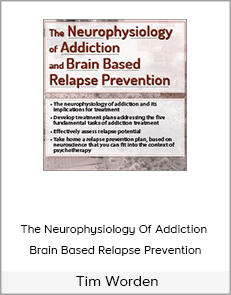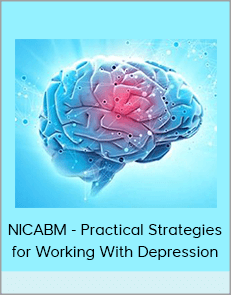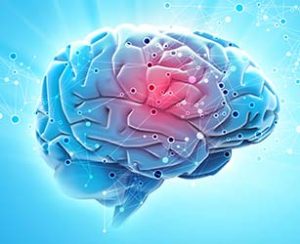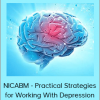-
1 × $40.00
-
1 × $35.00
-
2 × $70.00
-
1 × $5.00
-
1 × $440.00
-
1 × $130.00
-
1 × $55.00
-
1 × $120.00
-
1 × $10.00
-
1 × $20.00
-
1 × $37.00
-
1 × $20.00
-
1 × $10.00
-
2 × $27.00
-
1 × $57.00
-
2 × $150.00
-
2 × $150.00
-
1 × $40.00
-
1 × $45.00
-
2 × $60.00
-
1 × $100.00
-
1 × $45.00
-
1 × $30.00
-
1 × $60.00
-
1 × $90.00
-
1 × $268.00
-
2 × $40.00
-
1 × $120.00
-
1 × $80.00
-
1 × $65.00
-
1 × $35.00
-
1 × $230.00
-
1 × $30.00
-
1 × $95.00
-
1 × $40.00
-
1 × $25.00
-
1 × $280.00
-
1 × $70.00
-
1 × $37.00
-
1 × $40.00
-
1 × $10.00
-
1 × $40.00
-
1 × $300.00
NICABM – Practical Strategies for Working With Depression
$40.00$197.00 (-80%)
12 Downloadable audios you can listen to in the car, at the gym, and on the go
NICABM – Practical Strategies for Working With Depression
Check it out: NICABM – Practical Strategies for Working With Depression
Practical Strategies for Working With the Depressed Mind
A Brain-Focused Approach For Helping Clients Relieve Depression Naturally
Depression destroys lives. Its far-reaching effects can leave families in ruins.
But neuroscience has given us powerful ways to shift the areas of the brain most affected by depression.
Practical Brain-Focused Strategies for Working With Depression
Why Depression is a Form of Trauma
- Why depression is the ultimate avoidance strategy
- The four parts of the Depression Loop (and why it’s so hard to break)
- Why the brain reacts to depression the same way it reacts to trauma
- What an enlarged amygdala does to a depressed patient
- Shame: depression’s worst nightmare
- The neuroscience behind the shame-depression connection
- The crucial role of the vagus nerve in depression
How to Ignite the Depression-Battling Part of the Brain
- How to build the implicit memories that will take down depression
- One way to break up old emotional patterns to reduce reactivity
- “Tuning the Heart”: one skill that primes the brain against depression
- The one practice that can lead to a massive left prefrontal shift
- How to reduce the cellular inflammation that’s driven by depression
How to Create a Flexible Mind to Combat Depression
- The one “guilty pleasure” that powers strong neural connections
- How “play” affects the nervous system in a client who is depressed
- What happens to the self-critic in both playfulness and depression
- How to rewire the cognitive processing that gets shut down by depression
- How to activate the “Brain Fertilizer” protein that builds neuroplasticity
The 3 Things You Need to Foster Change in Your Client
- How to integrate the “Three-Legged Stool” approach to reduce suffering
- The one critical skill from childhood that boosts neuroplasticity (and why you may need to relearn it)
- The four key attitudes that lead to growth
One Strategy to Help Your Clients Feel Resilient
- How to help clients experience resilience from the inside-out
- The direct connection between positive decisions and immune functioning
- Why we’re wired to accept negativity (and block resiliency)
Why Your Patient Needs an Adult Play Date
- How a client’s playful memories can transform their childhood narrative
- How “foreboding joy” leads to anxiety
- The survivalist brain and why it protects some clients from feeling “too good”
- How implicit messaging can derail the intervention
How to Help Clients Avoid Falling Into the Deficiency Gap
- Why a client’s values can lead them to greater depression
- How to help clients turn “values into verbs” to enhance brain integration
- Why caretakers might be resistant to compassion work
- How to tailor an intervention for chronically-depressed patients
- Why it’s crucial for the practitioner to match the practice to the client’s level of depression
How to Help Clients Shift From a Fixed Mindset to a Growth Mindset
- A 4-step process for encouraging positive beliefs
- The slippery slope that takes a client from deficiency to depression
- One tactic for defusing unconscious negative thoughts
- Why visualization is like a springboard for the brain
Here’s What You’ll Get:
Everything is yours to keep forever in your professional library
12 Downloadable videos to watch when it’s convenient for you
Printable transcripts to make review and action simple
12 Downloadable audios you can listen to in the car, at the gym, and on the go
2 Bonuses to help you work more effectively with depression
Get Two Bonuses to Help You Work More Effectively with Depression:
Bonus 1
How to Foster Post-Traumatic Growth in Relationships
Get the gift of meditation from our friends at Health Journeys, used nationwide to invite relaxation and relieve depression naturally.
This expertly rendered guided imagery can help reduce symptoms of depression and increase a person’s sense of hope, love, motivation, and possibility.
Bonus 2
3-Minute Emergency Tool for Managing a Low Mood
Zindel will guide you through a short exercise for your clients to use when they feel a low mood coming on.
He’ll explain this strategy in 3 simple steps so that you can share it with your clients immediately.




























































































